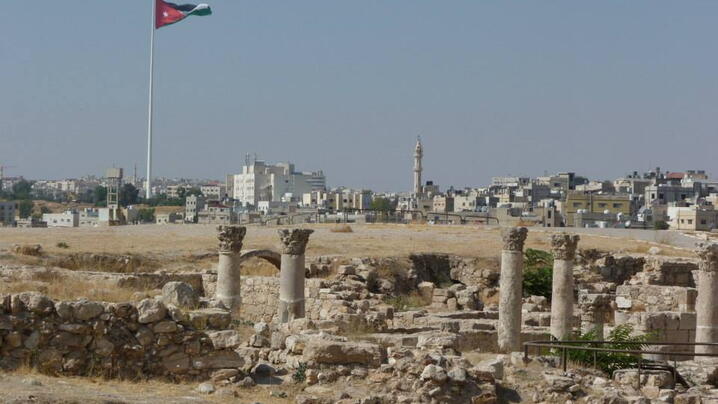
Wes Hare
The most common response to my announcement that I would be doing some work in Jordan during the last two weeks in August was concern for my safety. We have all been reading about violence in the Middle East and the common assumption seems to be that all countries in the region are afflicted with it. Jordan is not only peaceful, but an amazing and attractive place to visit.
A colleague and I were asked to make presentations at three local government workshops focusing on economic development as a part of the Local Enterprise Support (LENS) Project sponsored by the U.S. Agency for International Development. The International City/County Management Association (ICMA) is a partner on this project, charged with connecting U.S. managers and subject-matter experts to counterparts in Jordan. My colleague was Dr. Colleen Johnson, a U.S. economist and former Oregon mayor, who presented a case study on a local development project. We were privileged to work with the former director of the Jordanian customs service and noted economist, Dr. Khalid Wazani. There is a great pool of talented and educated people in Jordan and it shows in the quality of services and new development.

Dr. Colleen Johnson listens to Jordanian local government officials in Irbid
Jordanian resources are currently challenged, however, by a flood of refugees from Syria and Iraq. Several hundred thousand people have moved into a country of about 9 million people that is 2 ¾ times smaller than the state of Oregon. The LENS program seeks to help create economic opportunities for Jordanians and refugees alike.
Tourism, long an important part of Jordan’s economy, has suffered unfairly from the violence surrounding the nation. We had the opportunity to drive around the country and visit incredible places such as the Dead Sea, Mount Nebo, the ruins at Jerash, Umm Qais, Bethany, Madaba and, of course, Petra. The people of Jordan were welcoming, hospitable and kind as we visited some of the most incredible historic sites in the world. I have visited Roman ruins throughout the old empire and have found none that give a better sense of its grandeur than those in Jordan. Petra defies description and offers some amazing hikes through terrain similar to the American Southwest. We saw no hint of violence and experienced nothing that made us feel unsafe.
Agriculture is also important to Jordan’s economy and it too has been affected by neighboring conflict. Jordanian farmers are unable to export much of their produce to traditional markets and, in some cases, destroy their produce for want of buyers. Food going to waste while children go hungry in nearby countries is just another example of the many tragic consequences of war in the Middle East. Cities are interested in developing more food processing capacity to take advantage of fresh produce that is currently wasted.
Jordanian cities will be participating in a new CityLinks partnership in the coming months and I hope ICMA members will look for partnership opportunities. Being a part of this program offers opportunities for growth and understanding that cannot be gained in traditional training. Jordan can use our help, but I believe we have as much to learn from the people of this remarkable country as we can offer to them. For more information about the USAID LENS, please click here
New, Reduced Membership Dues
A new, reduced dues rate is available for CAOs/ACAOs, along with additional discounts for those in smaller communities, has been implemented. Learn more and be sure to join or renew today!
